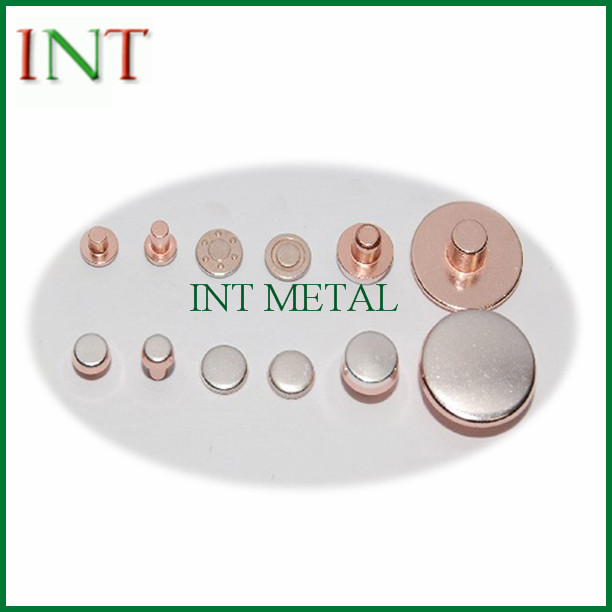Key aspects of silver zinc electrical contacts
2023-11-16
Silver zinc electrical contacts typically refer to electrical contacts made from a combination of silver and zinc. These contacts are often used in various electrical devices, including switches, relays, and circuit breakers. Here are some key aspects of silver zinc electrical contacts:
1. Composition:
- Silver: Silver is chosen for its excellent electrical conductivity, making it an efficient material for electrical contacts. It allows for good current flow and low resistance.
- Zinc: Zinc is often used as an alloying element or coating to enhance the properties of the contact. It can contribute to improved corrosion resistance and other desirable characteristics.
2. Electrical Conductivity:
- The silver component provides high electrical conductivity, ensuring that the contacts facilitate efficient current transfer in electrical circuits.
3. Corrosion Resistance:
- Zinc is known for its corrosion-resistant properties. When added to silver, it can help protect the contacts from corrosion, making them more durable and reliable over time.
4. Low Contact Resistance:
- The combination of silver and zinc aims to minimize contact resistance, ensuring a stable and reliable electrical connection.
5. Applications:
- Silver zinc electrical contacts find applications in a variety of electrical devices where reliable and low-resistance electrical connections are crucial. This includes switches, relays, and circuit breakers in industrial, automotive, and electronic applications.
6. Manufacturing Processes:
- The contacts are typically manufactured using processes like stamping, machining, or powder metallurgy, depending on the specific requirements of the application.
7. Cost Considerations:
- The use of zinc, which is more cost-effective than some other metals, may contribute to the cost-effectiveness of silver zinc electrical contacts compared to contacts made from more expensive materials.
8. Alloying and Plating:
- In some cases, the zinc component may be added as an alloy, or the surface of the contacts may be plated with zinc to enhance corrosion resistance and overall performance.
9. Environmental Considerations:
- The choice of silver zinc contacts may be influenced by environmental considerations, as zinc is a relatively abundant and recyclable material.
10. Customization:
- The composition and manufacturing processes can be adjusted to meet specific requirements, allowing for customization based on the needs of the application.
It's important to note that the specific properties and performance of silver zinc electrical contacts can vary based on the exact composition, manufacturing processes, and any additional treatments or coatings applied to the contacts. These contacts are chosen for applications where a balance of electrical conductivity, corrosion resistance, and cost-effectiveness is desirable.



